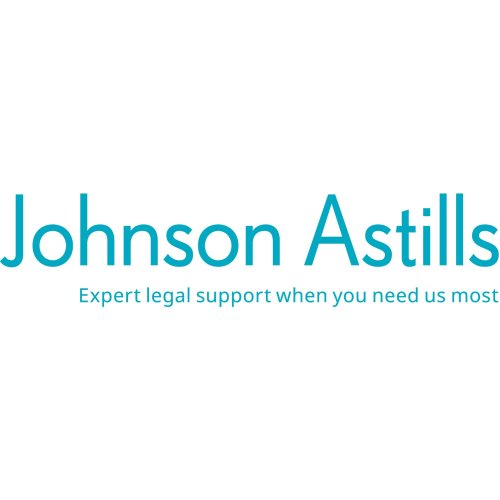Best Landlord & Tenant Lawyers in Loughborough
Share your needs with us, get contacted by law firms.
Free. Takes 2 min.
Free Guide to Hiring a Real Estate Lawyer
List of the best lawyers in Loughborough, United Kingdom
About Landlord & Tenant Law in Loughborough, United Kingdom
Landlord and tenant law in Loughborough, as in the rest of England, is governed by a complex array of laws that regulate the rental of residential and commercial properties. This area of law is essential for ensuring a fair and equitable relationship between landlords and tenants. It covers various aspects such as lease agreements, rent, maintenance responsibilities, eviction processes, and dispute resolution. In Loughborough, being a university town, many rental agreements pertain to student accommodations, which may have specific considerations compared to other residential lets.
Why You May Need a Lawyer
There are numerous situations where individuals may require legal help in landlord and tenant matters:
- Disputes over rent and deposits
- Eviction notices and proceedings
- Repairs and maintenance obligations
- Lease agreement violations and enforcement
- Resolution of disputes over shared housing agreements, common in student housing
- Advice on housing benefit and rent arrears
- Unlawful eviction or harassment from a landlord
- Understanding legal responsibilities under tenancy agreements
Local Laws Overview
Loughborough, while subject to national U.K. law, may be influenced by specific local council regulations, particularly focusing on housing standards and student accommodations. Key aspects of the local laws include:
- Tenancy Agreements: Must be fair and comply with the Housing Act. This can include periodic tenancy agreements specific to student lets.
- Safety Regulations: Compliance with safety standards such as gas and electrical safety checks.
- Deposit Protections: All deposits must be registered with a government-approved deposit protection scheme.
- Rent Increases and Control: Regulations on how and when rent can be increased.
- HMO Licensing: Houses in Multiple Occupation (HMO) may have additional licensing requirements due to the high student population.
Frequently Asked Questions
What is the process for ending a tenancy?
The termination process can vary depending on the type of tenancy agreement. Assured shorthold tenancies typically require a minimum of two months' notice from the landlord, while tenants need to give at least one month's notice.
Can a landlord enter the property without permission?
Landlords generally must provide at least 24 hours' notice and visit at a reasonable time. Unannounced visits could be deemed harassment.
What should I do if my landlord is not making necessary repairs?
Document all requests made for repairs and consider formal communication, like a letter. If unresolved, seek advice from the local council or a legal advisor.
Are there specific laws regarding student housing in Loughborough?
Yes, due to the large student population, certain regulations such as HMO licensing and additional safety standards often apply to student housing.
What is the difference between an assured and an assured shorthold tenancy?
Assured tenancies offer more security for tenants, while assured shorthold tenancies are standard and generally allow landlords to regain possession more easily.
How are disputes over rent deposits resolved?
Disputes can be resolved through the deposit protection scheme used, which provides a dispute resolution service to handle these issues.
Can I be evicted during the fixed term of my lease?
Tenants can only be evicted during the fixed term if they breach the tenancy agreement, such as failing to pay rent.
Is mold in the property a landlord's responsibility?
Mold caused by structural issues or leaks is generally a landlord's responsibility unless it results from tenant behavior.
What happens if a tenant refuses to vacate after eviction notice?
If a tenant does not leave after the notice period, landlords usually need to seek a court order for possession.
How can I check if my deposit is protected?
Landlords are legally required to provide details of the deposit protection within 30 days of receiving it. Tenants can verify this with the scheme directly.
Additional Resources
Several resources are available for individuals seeking advice on landlord and tenant issues in Loughborough:
- Local Council Housing Department: Offers guidance on rental properties and can help with disputes and complaints.
- CAB (Citizens Advice Bureau): Provides free advice on housing and tenant rights.
- Shelter Charitable Organization: Specializes in housing advice and support for tenants facing difficulties.
- Tenancy Deposit Protection Schemes: Useful for deposit-related queries and resolving disputes.
Next Steps
If you require legal assistance in landlord and tenant matters, consider taking the following steps:
- Document all communications and events related to the dispute or issue, including emails, letters, and photographs.
- Contact relevant support services such as the Citizens Advice Bureau or Shelter for preliminary advice.
- Engage with Loughborough's local housing department for guidance specific to council regulations and support.
- If necessary, seek a local solicitor specializing in landlord and tenant law to provide professional legal advice and representation.
Lawzana helps you find the best lawyers and law firms in Loughborough through a curated and pre-screened list of qualified legal professionals. Our platform offers rankings and detailed profiles of attorneys and law firms, allowing you to compare based on practice areas, including Landlord & Tenant, experience, and client feedback.
Each profile includes a description of the firm's areas of practice, client reviews, team members and partners, year of establishment, spoken languages, office locations, contact information, social media presence, and any published articles or resources. Most firms on our platform speak English and are experienced in both local and international legal matters.
Get a quote from top-rated law firms in Loughborough, United Kingdom — quickly, securely, and without unnecessary hassle.
Disclaimer:
The information provided on this page is for general informational purposes only and does not constitute legal advice. While we strive to ensure the accuracy and relevance of the content, legal information may change over time, and interpretations of the law can vary. You should always consult with a qualified legal professional for advice specific to your situation.
We disclaim all liability for actions taken or not taken based on the content of this page. If you believe any information is incorrect or outdated, please contact us, and we will review and update it where appropriate.









